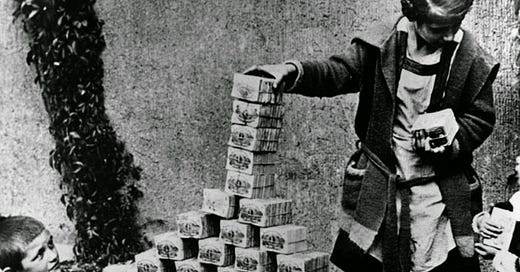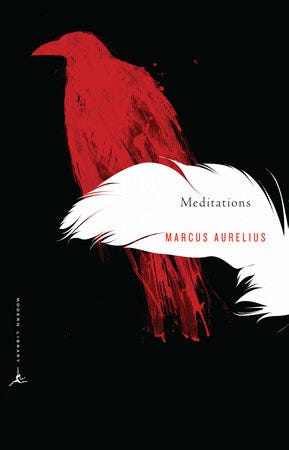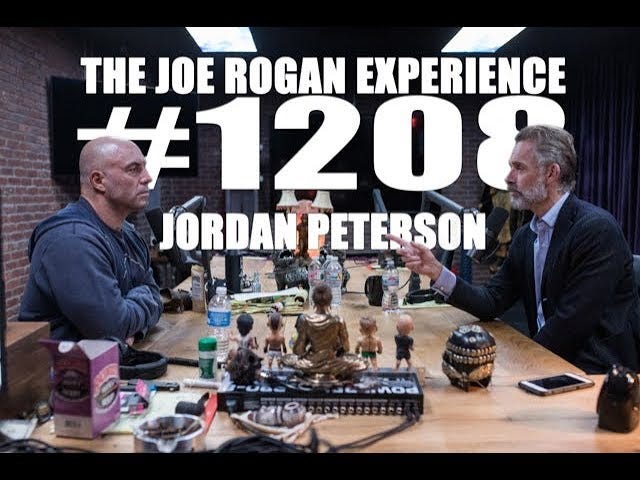Don't Let the Past Cloud out the Future
We have the luxury of learning from the past. For example, we might learn how the Gutenberg press paved the way for the protestant revolution and better anticipate the consequences of the Internet. Or we might notice that societies with significant wealth gaps historically face increased risk of unrest and revolution and have a better understanding of current unrest. Further, we might notice that countries that recklessly accumulate debt and print their currency don't last very long. (see Weimar Germany)
I chose these examples because I believe they are relevant today. If you would like to better prepare for the future by learning from the past, I recommend Ray Dalio's "Changing World Order." Dalio has studied the rise and fall of Empires going back thousands of years and compiled his findings here:
https://www.linkedin.com/pulse/changing-world-order-ray-dalio-1f/
The results may leave you feeling uneasy, but in the end, I believe the truth is preferable to blindness. For example:
Our Own Experience is too Small
We need to learn from the past to make better decisions. Our own experience is too small of a data pool to be our only reference point. Additionally, in reading works from the past, such as Meditations from Marcus Aurelius, we gain invaluable wisdom from emperors and other leaders. However, we mustn't let the paradigms of the past cloud our modern potentials.
When to Avoid the Past
A Paradigm is a typical example pattern of something. For example, an aspiring writer might aim to write a New York TImes best seller because, in the past, writing a New York Times bestseller has been the pinnacle of writing success. However, I would argue that is setting the bar far too low in the age of permissionless leverage(Internet).
What is permissionless leverage? Woody's World is an example. Firstly, It is permissionless because no one tells me I can or can't write Woody's World. I just started writing on my laptop one day. Secondly, it is leveraged because whether 100 people read this, or 100,000, no extra work is required. With the Internet, there are no barriers to entry, and the upside is unlimited. Compare that to the challenges of reaching an audience pre-internet. The only question remaining is distribution.
With the Internet, there are no barriers to entry, and the upside is unlimited
Let's return to the example of an aspiring author in 2021. I believe the goal of writing a NYT bestseller is somewhat comparable to a kid of the 1940s dreaming of becoming the most prominent radio announcer in the world. Or a kid of the 2010s planning to star in the next Jersey Shore. The only thing is that the kid of the 1940s would have missed the Television wave, and the kid of the 2010s would have missed YouTube.
Joe Rogan and Logan Paul
For anyone still not taking YouTube and other forms of "New" media seriously, Logan Paul, a prank YouTuber, just went eight rounds with Floyd Mayweather, the greatest boxer of all time. And, last year, Joe Rogan got paid 100 million from Spotify to host his podcast. What legacy media member has a similar reach? Also, we are still in the infantile stages of this revolution. I predict the legacy media will continue to die at the hands of individuals applying the might of permissionless leverage. Perhaps this looming threat contributes to the legacy media's increased fear-mongering in a last-ditch attempt to retain eyeballs.
Anyways, the point is, writing a NYT bestseller is still a considerable goal, but it is ignoring the new world we live in. With the Internet, our possibilities are much greater, and opportunity is widely distributed. I firmly believe "permissionless leverage" will continue to revolutionize how we consume information.
In conclusion
We should look to the past to learn timeless principles to understand our current state of affairs better. Also, we should learn from the classics and great authors to better orient ourselves. However, we need to remain open-minded to the ways the world around us is changing. We mustn't let the paradigms of the past cloud our modern possibilities.







